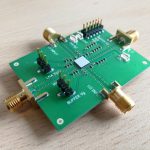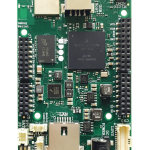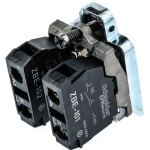
DC-DC converters are electronic devices widely used in multiple applications to convert a DC voltage level to another DC voltage level. DC/DC converters are integral to modern electronic systems as they enable power management and signal conditioning in a wide range of devices. However, selecting the right DC-DC converter for a specific application can be challenging. This article discusses the crucial factors to consider when choosing the right DC-DC converter for your application.
DC-DC Converters Applications and Importance
DC/DC converters convert a DC voltage level from one level to another, typically either stepping up or stepping down the voltage level. They are indispensable as several electronic devices require a specific voltage level to operate efficiently, and often the available voltage source does not match the level of voltage needed.
Here are a few key reasons why DC-DC Converters are important:
- Voltage Conversion: DC-DC converters convert a high voltage level to a lower voltage level or vice versa. This phenomenon is necessary to match the voltage requirement of electronic devices, such as microprocessors, sensors, and other electronic components.
- Energy Efficiency: By converting voltage levels efficiently, DC-DC converters help reduce power consumption in electronic devices, especially in battery-powered devices, where energy efficiency can extend battery life and reduce the need for frequent recharging.
- Size and Weight Reduction: DC-DC converters are often used in portable electronic devices, such as smartphones and laptops, to reduce the size and weight of the device. By reducing the converter size and weight, the overall size and weight of the device can be reduced.
- Stability and Regulation: DC/DC converters are also used in electronic systems and improve overall reliability and performance by providing a stable, regulated voltage supply, ensuring the devices receive a constant and reliable voltage supply.
Selection of the Right DC-DC Converters for Your Application: Key Considerations
By considering specific factors, it is possible to select the suitable DC-DC converter for your application and to ensure that your system operates optimally and reliably. These considerations include:
Input and Output Voltage Requirements
The first and most crucial factor to consider when selecting a DC-DC converter is the application’s input and output voltage requirements. The input voltage should be within the range specified by the DC-DC converter. The output voltage should be the voltage required by the load and be stable and regulated. The output voltage ripple should also be within the applications’ tolerable range of the application.
Power Requirements
The second factor to consider is the application’s power requirements. The DC-DC converter should provide the required power to the load. In addition, the power rating of the DC-DC converter should be higher than the power needed for the load to account for efficiency losses and power spikes.
Efficiency
Efficiency is another essential factor to consider when selecting a DC-DC converter that determines how much power is wasted as heat. A higher-efficiency DC-DC converter will generate less heat while consuming less power. Higher efficiency also leads to longer battery life in battery-powered applications.
Protection Features
Protection features are essential considerations in applications where the DC-DC converter may be exposed to extreme conditions or voltage spikes. The bespoke converter should have protection features, such as overvoltage protection, undervoltage protection, overcurrent protection, and over-temperature protection. These features protect the DC-DC converter from damage, ensuring application safety.
Operating Temperature
The operating temperature of the DC-DC converter is another crucial factor to consider. The environmental temperature can affect the product’s performance, and extreme temperatures can cause the DC-DC converter to fail. The DC/DC converter should operate within the temperature range specified by the application.
Size and Form Factor of DC-DC Converters
The size and form factor of the DC-DC converter are important considerations, especially in applications where space is limited. DC-DC converters come in various form factors, such as surface mount, through-hole, and module. The size of the DC-DC converter should be compatible with the application size.
Electromagnetic Compatibility (EMC)
EMC is an essential factor to consider in applications where the DC-DC converter may interfere with other electronics. The specific converter should comply with the EMC requirements specified by the application. It does not cause interference with other electronics in the system.
The Bottom Lines
Selecting the right DC-DC converter for your application ensures the system’s optimal performance and reliability. When selecting a DC-DC converter, it is essential to ascertain the input and output voltage requirements, power requirements, efficiency, protection features, operating temperature, size and form factor, and electromagnetic compatibility for the product’s optimal performance.





















